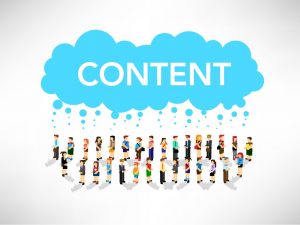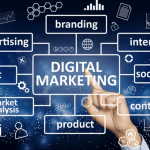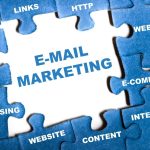There are many types of content you can create to better serve your community. You may not even think of adding some items into a product package, if it’s not one of the standard items needed. However, often the little odd things draw the most attention. Here are some different items you may want to consider using. And be sure to take a look at my Really Simple Content Marketing training program if you would like to work with me on this aspect of your business.
Blogs – You can put blog posts on your website, as guest blog posts on complementary influencer’s sites, and even LinkedIn. Make sure that each post is unique, relates to the audience, and has a call to action such as sign up for a newsletter, sign up for a free course; download a checklist, sign up for a free webinar and so forth.
Podcasts – These recordings you can list on your website, iTunes and in other places that inform your audience. For example, let’s say you’re a parenting coach. You may want to do a regular podcast about parenting issues in order to show your expertise. Again, always include a call to action so that listeners are reminded about the newest podcast and informed about your products and services.
Video – People really do love video and today there are tons of ways to offer video to your audience. You can appear in webinars, use Facebook Live, YouTube Live, and other means to create a video for your audience. Even if you don’t want to appear on the video, you can record short how-to videos using a screen recorder like Camtasia to show your audience how to do something that they need to learn that helps solve their problems. Include a call to action to share, subscribe, and sign up for your email list by offering a free checklist based on the video.
Interviews – A great way to create content that attracts your audience is to interview not only clients but also interview movers and shakers in the field. Think of who your audience would like to see you interview and try to get them. You can use a service like HARO, Help a Reporter Out to find people to interview or approach people directly using their contact information on their website. Most people are excited and happy to do interviews if you make it easy for them to do.
Newsletter – A newsletter can be email or even print. You can create one right on your website too. A newsletter usually goes out on a regular basis at a regular time each week or month depending on how you set it up. Also, a newsletter usually includes the same sections each time, for example, a case study, a cool article, a recommendation for a product or service, and of course a CTA for your flagship product. Often, the newsletter provides a way to link to the content you’ve put up since the last newsletter thus bringing readers back to your website.
Email Lists – Each entry point to your list is usually associated with a freebie or product. Choosing that item puts the customer on a specific path and email list according to the item he or she chooses. But the products, paths, and lists should change, somewhat, with each decision made.
For example, if a woman and a man choose the same freebie, each chooses it for a slightly different reason or motivation. If with the next choice, the man picks the “Dad” item and the woman chooses the “Mom” item, the list can be segmented or divided into two additional paths – one for mom and one for dad. This makes it easier for you to market to moms’ needs as well as to dads’ because each is added to a different list, specifically to meet that groups needs.
Mind maps – You can create mind maps that are helpful to your audience and offer them as freebies or even in a package for a small price. For example, any mind map you create for yourself might also be of use to your audience, or you can create some especially for the different things your audience needs to do.
Keywords – You may not consider keywords as part of your content but they are. It’s very important to do keyword research in order to help you come up with additional content ideas. Keyword research is imperative to help you come up with the most relevant content for your audience. Keywords help you align your business with your goals so that you can reach out to your customers in the most effective way.
Reports – One of the types of content that you’re likely familiar with are reports. Reports can be long, short, and even turn into books. A report typically covers one topic in depth or it can be an overview of an entire niche. It’s up to you, but creating reports is a great way to distribute information to your audience both free and for sale.
Surveys – This type of content is a great way to ensure that you get feedback from your audience. Plus, when you deliver the survey, your audience will consider your offerings, if you word the survey correctly and include a CTA (call to action) at the end.
Trends – One way to attract your audience is to find out what’s trending and then create or curate various types of content around that trend. Google trends along with Google alerts can be set up to help you follow trends and stay ahead of your competition.
Competition – Speaking of competition, they’re a great resource for content. If you notice your competition running long-term ads around any topic of interest to your audience, then you can be assured that they’re also making a profit. If you can identify gaps in their offering, you can one-up them and make it even better.
Social Media – This is probably one of your most useful forms of content right now outside of blog posts on your own website. Social media engagement helps build trust with your audience. You should always post a link to any content or information that is helpful to your audience along with a blurb on your social media networks. The idea is to lead them back to your website or sales pages.
Webinars – Another very useful types of content today is webinars. Webinars are honestly the “it” thing today and if you want to be successful online, build trust, build a loyal and engaged audience, find a way to do webinars. There are many software choices are available from Facebook Live, YouTube live, and places like Zoom.com to help you.
This list isn’t comprehensive. There may other kinds and types of content such as apps for your audience to help you connect, engage, build trust, and more. And be sure to read Nathan Ellering’s post on “105 Types of Content to Fill Up Your Editorial Calendar” for more ideas. The important part is that the content is planned with your cornerstone product in mind so that you lead the right audience through your offer funnel. As you fill in gaps, you’ll create more content in different forms. These help acknowledge your audience’s different learning styles. They will also help promote your products and services with the idea of leading them to your pilot product.
I’m Connie Ragen Green, online marketing strategist, bestselling author, and international speaker on the topics of entrepreneurship and inner game mind shifts. Let’s connect to see how I may best serve you in the near future.







Leave a Reply